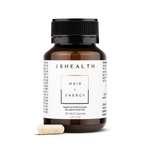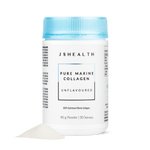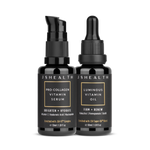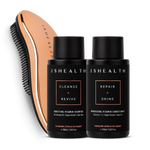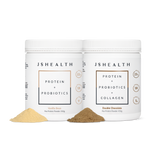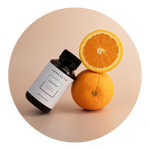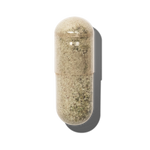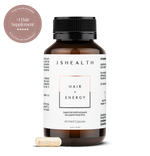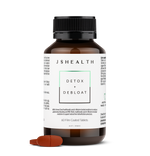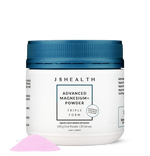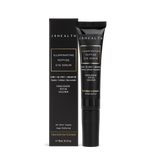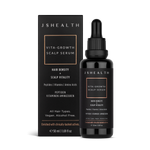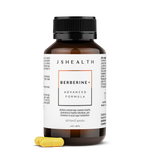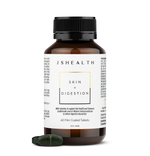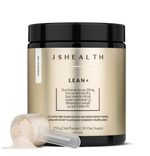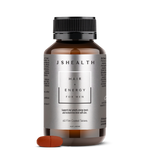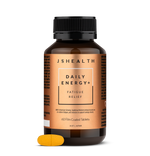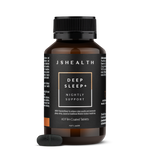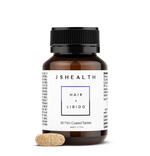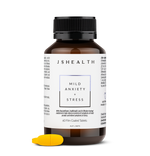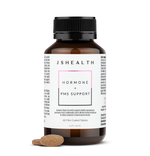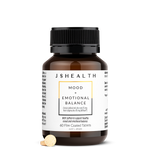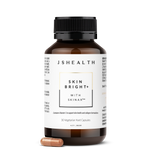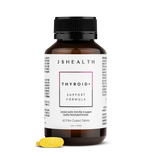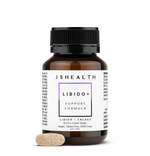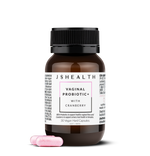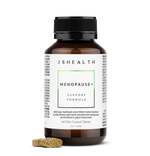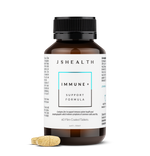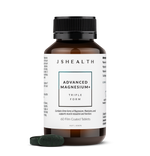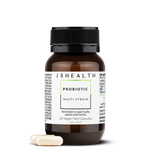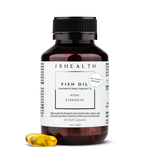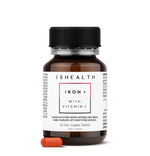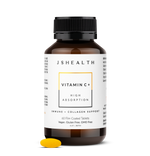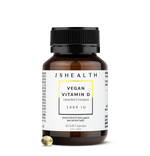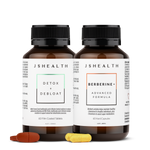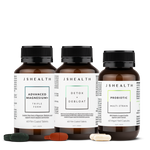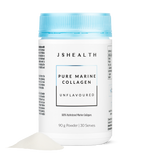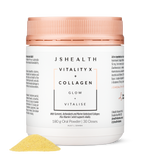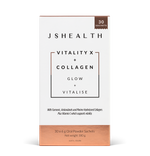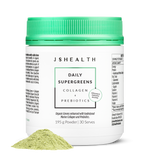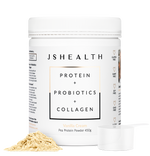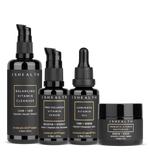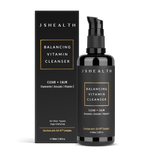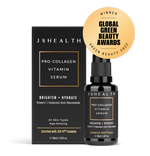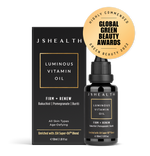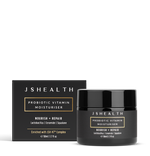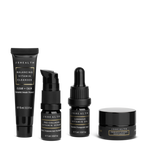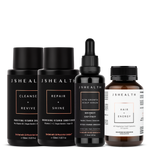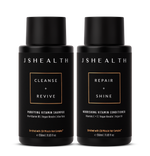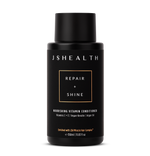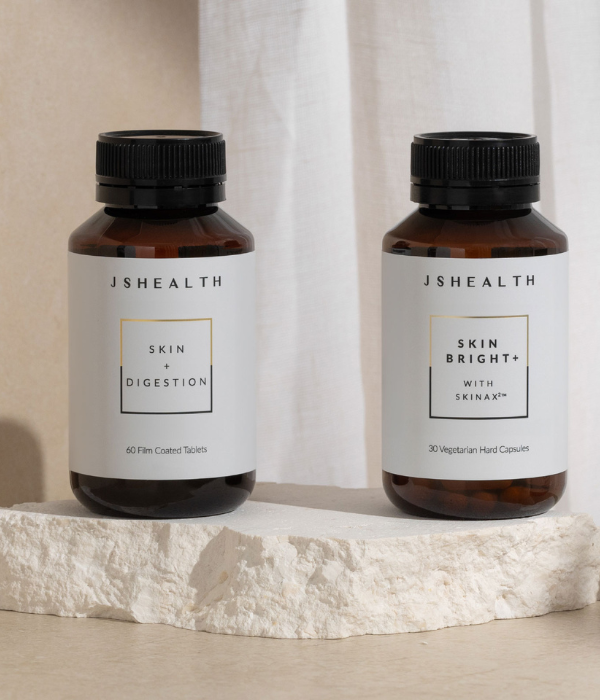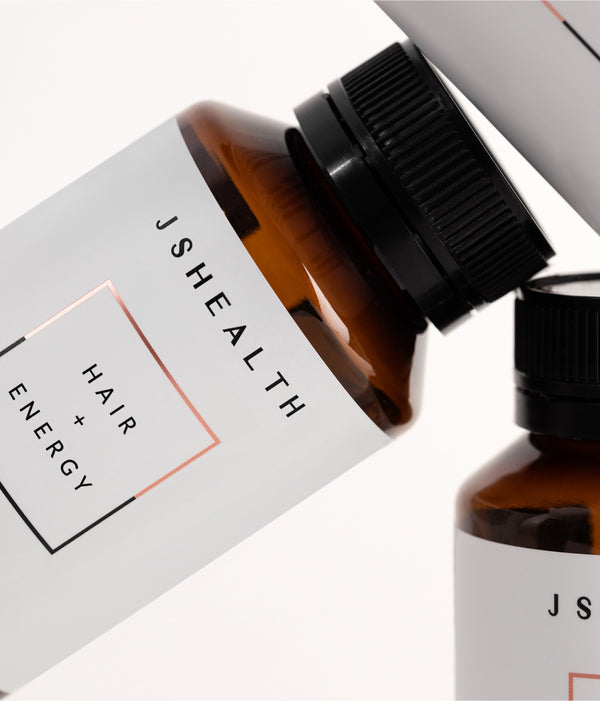Exploring Fish Oil and Krill Oil for Women's Health and Energy
Navigating the world of nutritional supplements can often feel like embarking on a voyage across a vast ocean. Among the numerous supplements available, fish oil and krill oil have emerged as two powerful sources of omega-3 fatty acids, vital nutrients that play a crucial role in our overall health.
Rich in omega-3s, fish oil and krill oil are especially advantageous for women. They have been associated with various benefits ranging from heart health to hormonal balance and even energy levels.
But what sets fish oil apart from krill oil? Should you be considering one over the other? Let's dive in and unravel these omega-3-rich oils together and explore how they can contribute to our wellness journey.
What Are Fish Oil and Krill Oil?
Let's start by understanding the basics of both fish oil and krill oil.
Fish oil, as the name suggests, is oil derived from the tissue of oily fish, such as salmon, mackerel and tuna. It's prized for its high concentration of omega-3 fatty acids, namely eicosapentaenoic acid (EPA) and docosahexaenoic acid (DHA).
These fatty acids are known as "essential" because they are necessary for our health, but our bodies can't produce them on their own. Therefore, we must source them from our diet or supplements.
On the other hand, krill oil is derived from tiny sea creatures called krill. Like fish oil, krill oil is also rich in EPA and DHA.
However, one key difference is that the omega-3s in krill oil are primarily in the form of phospholipids, which are more easily absorbed by our bodies. In contrast, the omega-3s in fish oil are in the form of triglycerides.
Another feature that sets krill oil apart is the presence of a naturally occurring antioxidant called astaxanthin. This antioxidant gives krill their vibrant red-orange colour and offers additional health benefits.
When it comes to the concentration of omega-3s, fish oil typically contains higher levels of EPA and DHA per serving compared to krill oil. However, because the omega-3s in krill oil are more bioavailable (easier for our bodies to use), you might not need as much krill oil to achieve similar benefits.
Remember: fish oil and krill oil each have their own unique health benefits. The choice between the two will largely depend on your specific needs and goals.
How Can Fish Oil Benefit Women's Health?
Fish oil, with its generous content of omega-3 fatty acids, has become a cornerstone supplement in supporting overall health and wellbeing, particularly for us women. Some areas where fish oil shines include heart health, hormonal balance and energy levels.
Let's delve deeper into how this wonder supplement can support our health in these critical areas.
Supporting Heart Health
Fish oil's impressive heart health benefits are largely attributed to the omega-3 fatty acids EPA and DHA. These nutrients play a crucial role in cardiovascular health in a few different ways.
For example:
- Omega-3 fatty acids support heart health by maintaining healthy blood pressure and cholesterol levels within a normal range.
- EPA and DHA also play a role in supporting healthy blood vessels and soothing tension, which can significantly impact heart and cardiovascular health.
By supporting your cardiovascular system, fish oil can contribute to overall heart health, a crucial factor considering heart disease is a leading health concern for women globally.
Nurturing Hormonal Balance
When it comes to hormonal balance, omega-3 fatty acids have some interesting potential benefits to offer. Hormones are the body's chemical messengers, influencing various functions such as mood, metabolism, growth and development, sexual function and even our energy levels. Any imbalance in these crucial substances can significantly affect our quality of life.
Emerging research suggests that omega-3 fatty acids can support hormonal health. For example, they may help in maintaining a regular menstrual cycle and soothe some symptoms associated with premenstrual syndrome (PMS). Though research is ongoing, these potential benefits underline the role of nutrition in hormonal health.
Supporting Energy Levels
Energy production is a complex process involving various vitamins, minerals and other nutrients, including omega-3 fatty acids. DHA, one of the key omega-3 fatty acids present in fish oil, plays an essential role in maintaining the health of our brain cells, which can influence our energy levels.
DHA helps in the efficient transmission of signals between brain cells. When our brain is functioning optimally, we're likely to experience stable energy levels, helping us stay focused and alert throughout the day. This benefit is especially vital for women who balance multiple roles daily, requiring sustained energy levels.
Aiding in Weight Management
Lastly, incorporating fish oil into your wellness routine might support weight management. Some research suggests that omega-3 fatty acids can aid in maintaining a healthy metabolism, which plays a key role in managing our weight.
While fish oil is not a magic fix-all for weight loss, when combined with a balanced diet and regular exercise, it may help to support your weight management efforts.
What Unique Health Benefits Can Krill Oil Provide for Women?
Now, let's explore the potential benefits of krill oil, another popular source of omega-3 fatty acids. While fish oil and krill oil share many health benefits due to their omega-3 content, krill oil presents unique advantages, especially for women.
Enhanced Bioavailability
One advantage that sets krill oil apart is its high bioavailability. This term refers to the ease with which our bodies can absorb and use the nutrients present in a substance.
In the case of krill oil, the omega-3 fatty acids are in a form that our bodies can more readily absorb compared to those in fish oil. What does this mean for your health?
Simply put, your body can more efficiently utilise the essential nutrients in krill oil, offering a greater health impact per serving. This superior absorption means that smaller quantities of krill oil are needed to achieve similar results as larger doses of fish oil.
The Antioxidant Advantage
Krill oil contains a potent antioxidant called astaxanthin. Antioxidants are compounds that support our body’s natural fight against oxidative stress, a harmful process that can damage our cells and contribute to ageing and various health issues.
Astaxanthin is a powerful antioxidant that can provide a range of health benefits. For instance, it supports skin health, a bonus for those of us who love natural beauty boosters!
Support for Premenstrual Syndrome (PMS)
Preliminary research suggests that krill oil may offer specific benefits for women dealing with the discomfort associated with premenstrual syndrome (PMS). While more extensive research is needed, initial findings are promising.
The omega-3 fatty acids in krill oil may help soothe PMS symptoms, such as mood swings, bloating and menstrual cramps. This benefit could make krill oil a worthwhile supplement for women seeking natural ways to manage PMS symptoms.
Joint Health Support
Another unique benefit of krill oil lies in its potential to support joint health. Some studies suggest that the powerful combination of omega-3 fatty acids and astaxanthin in krill oil may help maintain healthy joints.
Krill oil might soothe discomfort and stiffness associated with joint conditions, making daily activities easier and more enjoyable. For women who love staying active or want to keep their joints healthy as they age, krill oil could be a beneficial addition to their daily regimen.
What’s the Ideal Daily Intake for Fish Oil and Krill Oil?
As with many aspects of health and wellness, the ideal daily intake of fish oil and krill oil can depend on a range of factors, including your age, sex and overall health status.
Though no concrete recommendations exist, 250-500 mg per day of EPA and DHA is enough for most healthy people. Remember that this will vary depending on your needs; pregnant women, infants and children may require different doses.
In terms of krill oil, there is less established guidance on the ideal dosage. However, given its higher bioavailability, it's thought that you may achieve the same benefits with a smaller amount of krill oil compared to fish oil.
It's also worth noting these recommendations may not be optimal for everyone. Some individuals, especially those with specific health conditions, may benefit from higher doses, while others may require less.
Regardless of your personal situation, it's always wise to consult a healthcare provider before beginning any new supplement regimen. They can help you determine the ideal dosage based on your needs and health goals.
Remember, while fish oil and krill oil supplements can help you reach your daily omega-3 target, they aren't intended to replace a balanced diet. Aim to include a variety of omega-3-rich foods in your meals, such as fatty fish, walnuts and chia seeds, for a well-rounded nutritional profile.
If you're interested in adding a supplement, consider our thoughtfully designed range here at JSHealth. Our mission is to support your wellness journey with the highest quality, science-backed products.
Are There Side Effects When Using Fish Oil or Krill Oil?
Like any dietary supplement, fish oil and krill oil are generally considered safe for most people when used in moderation. However, they can cause some side effects, especially in high doses.
Common side effects include a fishy aftertaste, bad breath, heartburn, nausea and loose stools. These are usually mild and tend to decrease over time as your body adjusts to the supplement.
More serious side effects are rare but can occur. Given these considerations, it's crucial to talk with your healthcare professional before starting any new supplement regimen, especially if you have underlying health conditions or are taking other medications. Your healthcare professional can provide personalised advice, taking into account your current health status and needs.
Conclusion: Charting Your Course to Better Health With Fish Oil and Krill Oil
Navigating the world of dietary supplements can be complex, but with the right knowledge, you can make informed decisions that support your personal health journey.
The decision to incorporate fish oil or krill oil into your wellness routine is a personal one. It should be based on your health needs, goals and dietary intake. Always remember that dietary supplements are designed to complement a balanced diet, not replace it.
Before you make any changes to your diet or supplement regimen, it's important to consult with your healthcare provider. They can provide tailored advice and guidance, helping you make choices that align with your unique health needs and goals.
Your health is a lifelong journey, and we're here to support you every step of the way!
Sources:
Eicosapentaenoic Acid (EPA) and Docosahexaenoic Acid (DHA) | NCBI Bookshelf
Krill Products: An Overview of Animal Studies | PMC
Phospholipid | ScienceDirect Topics
Overview of Omega-3 Fatty Acid Therapies | PMC
Hormones: What They Are, Function & Types | Cleveland Clinic
Joint Pain: Symptoms, Causes, and Treatment | Cleveland Clinic
